Peking (Beijing) Opera - the National Opera of China
Known as the national opera of China, Peking Opera is the most influential and representative of all the operas in China. It is the highlight of any Beijing Toursts.
Peking (Beijing) Opera is a blend of music, dance, art, acrobatics, and martial arts. After reading this article, you will know more facts about Peking Opera and the best places to watch one.
Basic Facts of Peking Opera
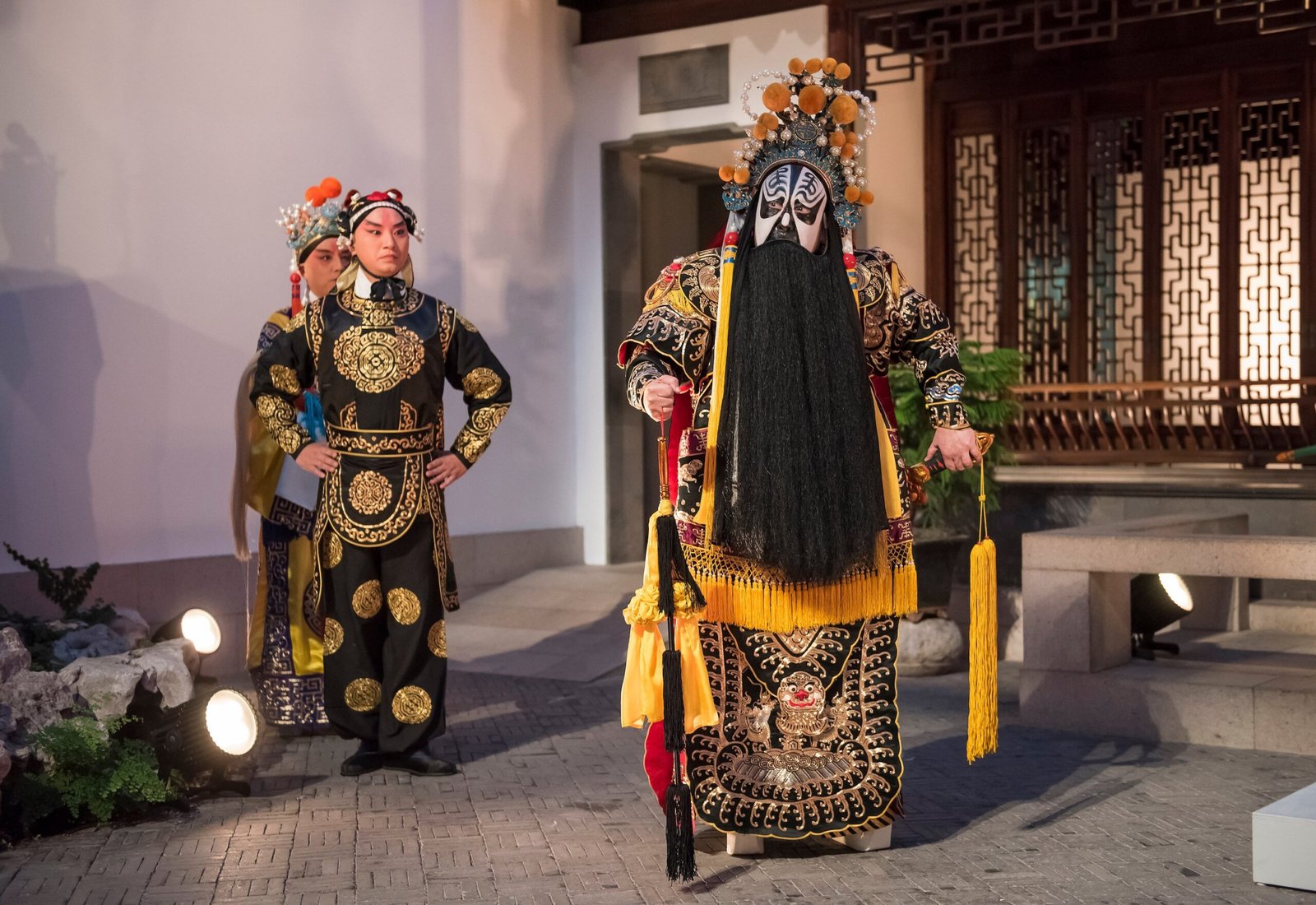
Originating in the late 18th century, Peking Opera features a rich repertoire of stories from history, folklore, and mythology, characterized by elaborate costumes and distinctive facial makeup. In this part, we will briefly introduce Peking Opera.
Four Main Kinds of Roles
The characters of Peking Opera are generally divided into four types of roles: Sheng, Dan, Jing, and Chou. Every type of role has its own characteristics, so the audience can distinguish them easily.
■ Sheng – Male role: Sheng has some sub-categories, including Senior (Lao Sheng), Middle-Aged with beards (Xu Sheng), Junior (Xiao Sheng), Acrobatic (Wu Sheng). These are classified according to the role’s characteristics.
■ Dan – Female role: There are six main parts which principally indicate different female roles: Qing Yi, a modest and virtuous lady; Hua Dan, a vivacious maiden; Gui Men Dan, a young girl; Dao Ma Dan (Peking Opera blues), a strong, more powerful character, usually a woman general; Wu Dan, the female acrobatic; Lao Dan, a senior woman.
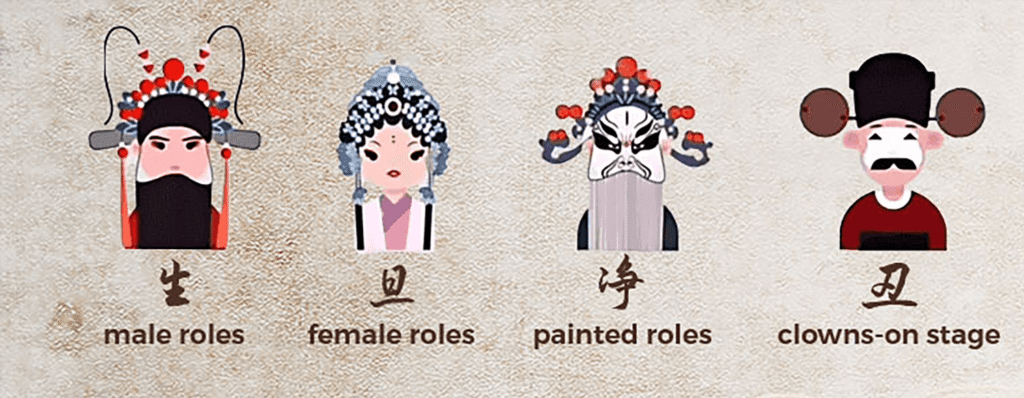
■ Jing – Painted role: This part is more featured with his aggressiveness, courage and resourcefulness. Often playing the part of a high rank army general, the Jing actor with his painted face can also be seen as a warrior or official. The exaggeratedly-painted face with a robust, husky, bass voice makes the role easily identified by audience. Whether brave, loyal or treacherous, merely one glance on the face makeup of a jing is enough for an experienced fan of Peking Opera to know his true nature and character.
■ Chou – The clowns-on stage: the comedy actor/actress who usually plays the minor role in the drama, a likeable and amusing character with blinking eyes and funny gestures. The part can be easily recognized by a white patch painted on the nose and the area between two eyes.
Facial Makeups
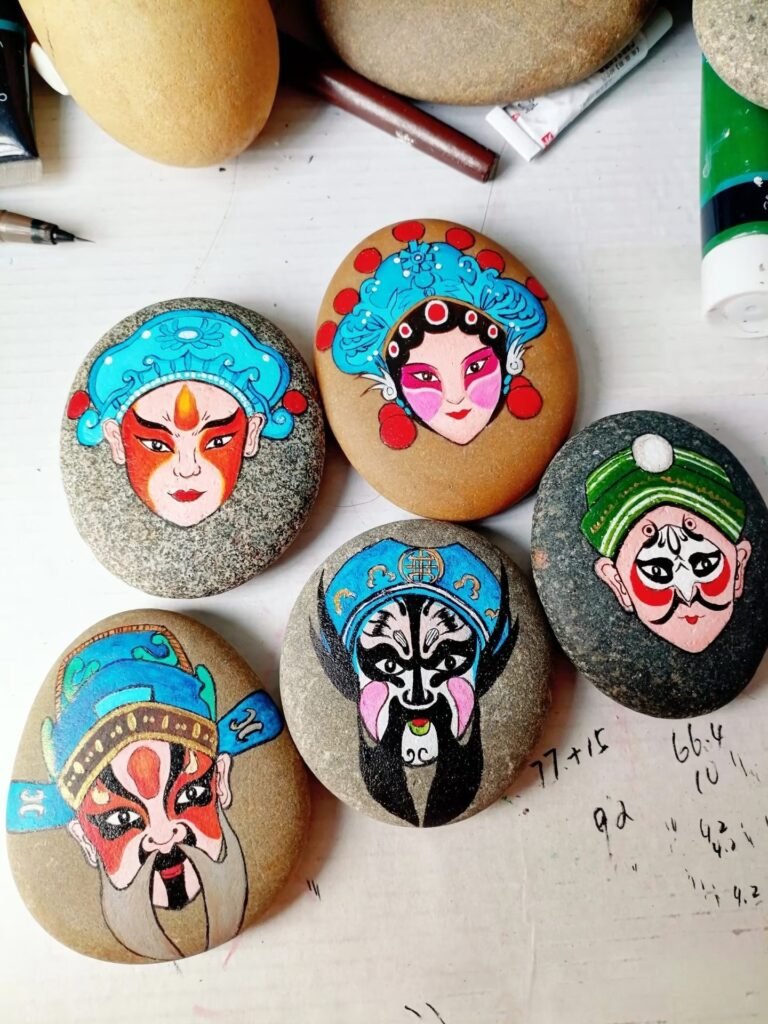
The facial makeup of the Peking (Beijing) Opera highlights and emphasizes the principal features of the characters. The main color of facial makeup of a certain role determines the personalities.
The following table covers the main colors that are most commonly used for facial painting.
Main Color | Personalities |
Red | Positive, brave, and honest |
White | Negative, cunning, and insidious |
Black | Positive, upright, stern, just |
Blue | Positive, strategic, wise, and skillful |
Green | Positive but grumpy, reckless, and rash |
Yellow | Positive but cruel, ferocious, and rude |
However, there are few exceptions.
For example, many Chou roles will draw a big white circle in the middle of their faces. That doesn’t mean they’re playing negative roles.
When the main characters are animals, such as the Monkey King in Havoc in Heaven, they need more complicated facial painting. In this case, it’s hard to tell the personality at first sight.
Besides watching Peking Operas, our Beijing tours include facial makeup experience. You can get a facial painting with your favourite color. If you’re interested in this activity, write to us and we’ll arrange it for your China tour.
History
Although it is called Peking Opera, its origins are not in Beijing but in Anhui and Hubei provinces.
It is believed that the Peking (Beijing) Opera gradually came into being after 1790, when Anhui Province’s four most famous opera troupes paid a visit to Beijing.
Based on traditional Anhui Opera, Peking (Beijing) Opera has also adopted repertoire, music, and performing techniques from Kun Opera and Qingqiang Opera, as well as traditional folk tunes. It took the best from each style and eventually formed its own highly stylized music and performing techniques.
Peking Opera underwent fast development during the reign of Emperor Qianlong and the notorious Empress Dowager Cixi of the Qing Dynasty. Having an imperial patron made Peking Opera extremely popular.
Therefore, it was more accessible to the common people. Empress Dowager Cixi was an avid fan. The huge three-story theater in the Summer Palace is proof of her love of Peking Opera.
Where to Watch Peking Opera in China
Peking (Beijing) Opera is a must-see of a Beijing tour. Thus, we’ve compiled the best Peking Opera theatres in Beijing for you.
1、Mei Lanfang Theatre
Mei Lanfang Theatre provides classical and modern Peking Operas. Basically, modern Peking Operas are adapted from novels written in the middle and late 20th century. All the performances start at 7:00 PM or later.
2、Beijing People’s Theatre
The Beijing People’s Theatre, originally built in 1953, reopened on October 16, 2023. It offers Peking Opera performances, with sessions available both during the day and in the evening.
3、Chang’an Grand Theatre
Chang’an Grand Theatre has over 70 years of history and provides classical Peking Opera performances. Compared with other top theatres, the ticket price here is cheaper, starting at 50 yuan per person.
4、Zhengyici Peking Opera Theatre
Zhengyici Peking Opera Theatre was not only a theatre but also a historical landmark in Beijing. It was built in 1688. Now it’s restored and well-maintained so that people can enjoy the Peking Opera in this theatre.
- National Centre for the Performing Arts (NCPA)
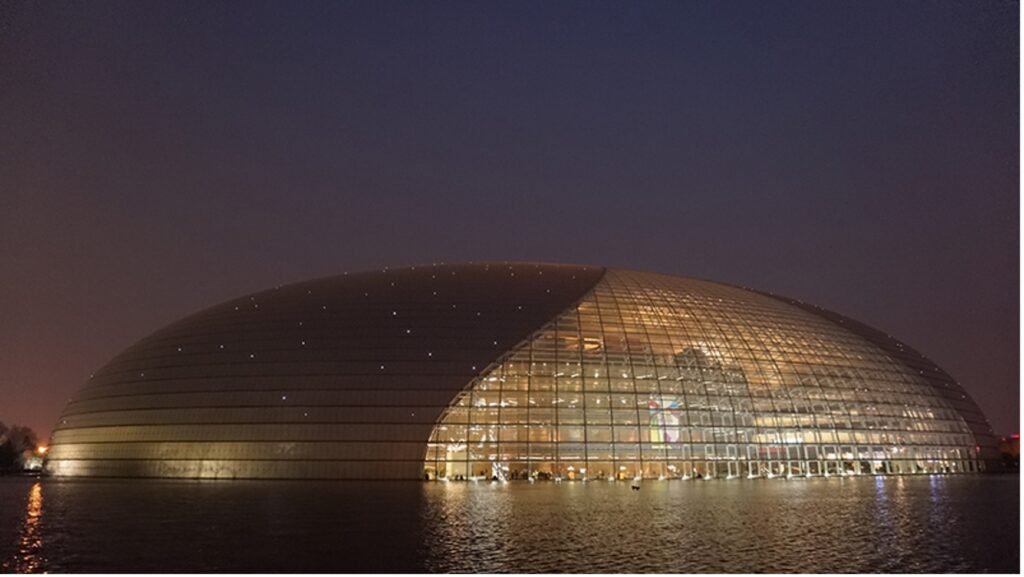
The National Centre for the Performing Arts is located in the center of Beijing. And it’s the best theatre in China, with high-end equipment. However, Peking Operas are not the only performances here. You can also enjoy other kinds of art, like concerts and dance festivals.
If you want to enjoy a Peking Opera during your China tour, contact us and we will help book a ticket for you.
Most Famous Peking Operas in China
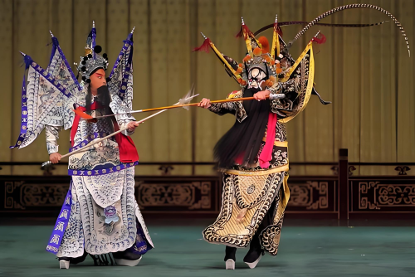
Here are the five most famous Peking Operas in China. After reading these brief introductions, you will have a clearer idea about what to watch in Chinese opera theatres.
1、Farewell to Concubine
The kingdoms of Chu and Han were at war. General Xiang Yu of the Chu Kingdom was surrounded by the Han army at Jiuli Mountain. In order to cheer up Xiang Yu, his concubine, Yu Ji, sang songs, performed a sword dance, and killed herself with the sword. This is the magnum opus of the Mei School of Peking Opera
2、Havoc in Heaven
This is an ancient Chinese fairy tale. The Empire of Heaven was having a huge peach banquet but did not invite the Monkey King. This angered the Monkey King so much that he went up to heaven before the banquet and ate all the peaches and the Pills of Immortality intended for the banquet. He then proceeded to destroy many of Heaven’s palaces. Due to its large amount of martial arts, this is one of China’s most popular Operas.
3、The Crossroad
Jiaozan, a senior official of the Song Dynasty, was exiled to Shamen Island because he killed a treacherous court official. The commander-in-chief, Yang Yanzhao, sent Ren Tanghui to protect Jiaozan secretly. During the night, Ren stayed at the same crossroad as Jiao. In that inn, a fierce fight took place between Ren Tanghui and the innkeeper, Liu Lihua, who thought Ren Tanghui wanted to murder Jiaozan. The fight waged for hours until Liu Lihua’s wife came in with a lit candle. The two men recognized each other, and this cleared up their misunderstanding.
4、Picking Up a Jade Bracelet
A young girl named Sun Yujiao enjoyed doing embroidery work in front of her family’s gate. One day, a young intellectual named Fu Ming passed by and instantly fell in love with her. Fu Ming dropped a jade bracelet on the ground on purpose to express his love. Sun Yujiao picked it up, which signified her acceptance of his love. Before Fu Ming dropped off the bracelet, she did not like him, but when he gave this display of his love for her, she changed her mind. This is a very traditional style of Chinese love story.
5、The Drunken Concubine
One day, Emperor Xuanzong of the Tang Dynasty invited his favorite concubine, Yang, to admire flowers in a pavilion. Yang waited for the emperor but he never showed up. Instead, he went to another of his concubine’s residences. Angered at being jilted, Yang felt depressed and got drunk. She sang to express her sadness and went back to her own palace, filled with resentment.
If you want to watch a wonderful and unforgettable Peking Opera performance, you can also arrange the whole process for you through us, please feel free to contact us.
